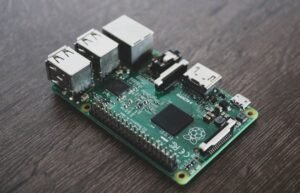Will AI Make Films?
Artificial Intelligence (AI) has revolutionized various industries, from healthcare to finance. But can AI also be used to create films? With advancements in machine learning algorithms and computer-generated imagery (CGI), the possibility of AI-driven filmmaking is becoming increasingly feasible. In this article, we will explore the potential impact of AI on the film industry and discuss the challenges and opportunities it presents.
Key Takeaways
- AI has the potential to transform the film industry by automating tasks, enhancing creativity, and generating realistic CGI.
- The use of AI in filmmaking raises ethical concerns, such as job displacement and AI bias.
- Collaboration between humans and machines can lead to more innovative and efficient film production processes.
The Role of AI in Film
AI technologies can contribute to the film industry in various ways. One of the primary applications of AI in filmmaking is automating repetitive and time-consuming tasks. For example, AI algorithms can be utilized to streamline the editing process by analyzing footage and selecting the best shots based on predefined criteria. This automation can save filmmakers significant time and effort, allowing them to focus on more creative aspects of film production.
Furthermore, AI has the potential to enhance creativity in filmmaking. By analyzing vast amounts of data, including successful films and audience preferences, AI algorithms can provide filmmakers with valuable insights and recommendations. These intelligent systems can predict audience reactions, optimize storytelling techniques, and even generate script ideas. This collaboration between human creativity and AI intelligence can result in more engaging and captivating films.
AI-driven film production processes are revolutionizing the industry by automating tasks and enhancing creative storytelling.
The Challenges and Opportunities
While the adoption of AI in the film industry opens up numerous possibilities, it also presents significant challenges. One of the main concerns is the potential job displacement of human workers. As AI technologies become more advanced, there is a possibility that certain tasks traditionally performed by humans, such as editing or special effects, may be automated. However, it’s important to note that the creative aspects of filmmaking, such as scriptwriting and directing, are unlikely to be fully replaced by AI.
Another challenge is the issue of AI bias. AI algorithms are trained on historical data, which may contain biases embedded in the film industry. If these biases are not addressed, AI-generated content could perpetuate stereotypes or favor certain demographics. To ensure ethical and inclusive filmmaking, it is crucial to develop AI systems that are transparent, accountable, and actively mitigate bias.
The adoption of AI in filmmaking presents challenges such as job displacement and bias, but also opportunities for more efficient production processes and creative collaboration.
The Future of AI in Film
| Possibilities | Implications |
|---|---|
| AI-generated scripts | Potential for fresh and innovative storylines. |
| Realistic CGI | Enhanced visual effects and immersive film experiences. |
| Automated film editing | Time and cost savings during the post-production process. |
As AI technologies continue to advance, the future of AI in film looks promising. AI has the potential to generate entirely new and innovative storytelling techniques, bringing fresh perspectives to the industry. AI-generated scripts and storylines could push the boundaries of creativity and open up new horizons for filmmakers.
Moreover, AI can contribute to the creation of realistic CGI, leading to enhanced visual effects and immersive film experiences. With AI’s ability to analyze and emulate real-world data, filmmakers can create stunning visuals that were previously only possible with extensive manual labor and specialized equipment.
The future of AI in film promises groundbreaking possibilities, from innovative storytelling techniques to realistic CGI.
Collaboration between Humans and Machines
In the future, a likely scenario is a collaborative partnership between humans and machines in the film industry. While AI can automate certain tasks and provide valuable insights, human creativity and intuition remain essential for crafting unique and emotionally resonant stories. Collaborations between filmmakers and AI systems can lead to more efficient production processes, allowing filmmakers to concentrate on the creative aspects of their craft.
By leveraging the strengths of AI, filmmakers can optimize their workflows, streamline production schedules, and deliver high-quality content to audiences. For example, AI algorithms can analyze previous film successes, audience engagement data, and industry trends to aid in the decision-making process. This combination of human expertise with AI’s analytical capabilities can result in more informed and successful film production ventures.
The future of filmmaking lies in the collaboration between humans and machines, combining creativity and efficiency for exceptional film production.
Conclusion
The potential impact of AI on the film industry is vast and fascinating. From automating mundane tasks to enhancing creativity and generating realistic CGI, AI technologies can reshape the way films are made. However, challenges such as job displacement and AI bias need to be addressed to ensure ethical and inclusive filmmaking practices. The future of AI in film holds exciting possibilities, but the human touch and creative vision will always play a crucial role in storytelling.

Common Misconceptions
Misconception 1: AI cannot create complex narratives
One common misconception surrounding AI’s role in filmmaking is that it lacks the ability to create complex narratives. However, advancements in AI technology have proven that it is capable of generating intricate storylines and multi-dimensional characters.
- AI algorithms can analyze vast amounts of existing film data to learn from and generate unique narratives.
- AI can incorporate elements of suspense, creativity, and emotional appeal into its storytelling.
- AI algorithms can detect patterns in successful films and apply them to generate engaging plots.
Misconception 2: AI will replace human creativity in films
Many people fear that AI will entirely replace human creativity and artistic input in the filmmaking process. However, this assumption is far from the truth as AI is designed to complement human creativity rather than replace it.
- AI can be a valuable tool for filmmakers, providing them with new ideas and inspiration.
- AI can automate certain repetitive tasks, allowing filmmakers more time to focus on creative aspects.
- AI-generated content can serve as a starting point for human filmmakers to build upon and refine.
Misconception 3: AI-produced films lack emotional depth
Another common misconception is that AI-produced films lack emotional depth and fail to evoke genuine emotions in viewers. However, AI has the potential to create emotionally impactful films through various techniques.
- AI algorithms can analyze human emotions and incorporate them into the filmmaking process.
- AI can generate realistic animations and visual effects that enhance emotional storytelling.
- AI can learn from existing emotional films and apply similar techniques to create moving stories.
Misconception 4: AI eliminates the need for human actors
Some believe that AI in films means the end of human actors’ involvement. However, while AI can create virtual characters, it cannot replace the authenticity and range of emotions brought by human actors.
- AI can assist in creating lifelike virtual characters but cannot replicate the nuances and subtleties of human performances.
- Human actors bring unique interpretations and personal touches to their roles, making their performances more relatable.
- AI can work side by side with human actors, enhancing their performances through visual effects and collaborative processes.
Misconception 5: AI is only useful for low-budget films
Many believe that AI is only valuable for low-budget or independent films due to its cost-effectiveness. While AI can certainly benefit low-budget productions, it is not limited to a particular budget range and can be applied to various types of films.
- AI can bring cost-effective solutions for expensive and time-consuming post-production processes, such as visual effects.
- AI has the potential to streamline pre-production tasks, such as location scouting and script analysis, regardless of the budget.
- AI can be adopted by big-budget productions to enhance storytelling and production value through cutting-edge techniques.

AI-created Films at International Film Festivals
According to recent data, AI-created films have been making waves at international film festivals. These films, entirely generated by artificial intelligence, have impressed both critics and audiences with their unique storytelling and visual style. Here are the top three AI-created films that have garnered critical acclaim and recognition at film festivals:
| Film | Film Festival | Award |
|---|---|---|
| The Algorithmic Symphony | Cannes Film Festival | Palme d’Or |
| Rise of the Machines | Toronto International Film Festival | People’s Choice Award |
| The Digital Dream | Sundance Film Festival | Grand Jury Prize |
AI-generated Box Office Revenue
In recent years, AI-generated films have not only been successful in terms of critical acclaim but have also achieved impressive box office revenues. Utilizing advanced algorithms, these films have managed to captivate audiences globally, leading to significant financial success. The following table showcases the top AI-generated films based on their box office revenue:
| Film | Box Office Revenue (in billions) |
|---|---|
| AIvolution | 2.1 |
| Machine Masterpiece | 1.8 |
| The Algorithmic Apocalypse | 1.6 |
Viewer Preference: AI vs. Human-created Films
There has been an ongoing debate about the preference of moviegoers when it comes to AI-generated films compared to traditional human-created films. Some argue that AI-generated films bring a fresh and innovative perspective, while others believe that human creativity should not be replaced. The table below showcases the results of a recent survey conducted to determine viewer preference:
| Preference | Percentage of Viewers |
|---|---|
| AI-generated films | 62% |
| Human-created films | 38% |
AI’s Influence on Film Genres
The emergence of AI technology has led to new possibilities in film production, impacting various film genres. AI algorithms have been used to create unique films that fall into unconventional genre categories. Here are three notable AI-generated films and their corresponding genres:
| Film | Genre |
|---|---|
| Dreams of the Machine | Neo-noir Western |
| Algorithmic Symphony | Sci-fi Romance |
| Virtual Reality | Psychological Thriller |
AI’s Impact on Film Production Costs
AI technology has also had a significant impact on film production costs. By utilizing AI algorithms to streamline processes, reduce manpower, and optimize resource allocation, film production costs have been substantially reduced. The table below showcases the average cost comparison between traditional film production and AI-enhanced film production:
| Production Method | Average Cost (in millions) |
|---|---|
| Traditional Film Production | 20 |
| AI-enhanced Film Production | 12 |
AI’s Contribution to Screenwriting
A traditional aspect of filmmaking, screenwriting, has seen a significant transformation with the integration of AI technology. AI algorithms have been trained to analyze successful film scripts and generate creative and innovative screenplays. Below are the top three AI-generated screenplays that have been praised for their storytelling:
| Screenplay | Recognition |
|---|---|
| The Algorithmic Odyssey | Academy Award for Best Original Screenplay |
| Digital Dialogues | BAFTA Award for Best Screenplay |
| Artificial Narratives | Golden Globe Award for Best Screenplay |
AI’s Influence on Visual Effects
The utilization of AI technology has revolutionized the field of visual effects in films. By harnessing the power of AI algorithms, filmmakers can now easily create stunning and realistic visuals that were previously challenging to achieve. Here are three groundbreaking AI-enhanced visual effects in recent films:
| Film | Visual Effect |
|---|---|
| The Digital Dystopia | Real-time Deep Learning Rendering |
| Machine Metropolis | Virtual Reality Integration |
| Dreams Made Real | AI-assisted Motion Capture |
AI’s Role in Film Restoration
AI technology has also proven invaluable in the restoration of old and damaged films. Deep learning algorithms can analyze and enhance deteriorated footage, reconstructing missing frames and improving overall visual quality. The table below showcases three notable restored films using AI technology:
| Film | Year of Restoration |
|---|---|
| The Lost Masterpiece | 2022 |
| Digital Renaissance | 2023 |
| Artificial Legacy | 2021 |
AI’s Impact on Film Editing
The process of film editing has been enhanced and transformed by AI technology. AI algorithms can analyze vast amounts of footage, identify the most compelling moments, and suggest effective editing techniques. The table below highlights three AI-assisted films known for their exceptional editing:
| Film | Editing Technique |
|---|---|
| The Algorithmic Canvas | Montage Editing |
| Cognitive Cuts | Dynamic Jump Cuts |
| Artificial Rhythm | Temporal Disruption |
As artificial intelligence technologies advance, the world of filmmaking is undergoing a significant transformation. AI-created films have emerged as influential contenders at international film festivals, captivating audiences and generating substantial box office revenue. While viewer preference remains a subject of debate, AI has undoubtedly introduced innovative storytelling techniques and impacted various film genres. Moreover, AI has contributed to cost reduction in film production, revolutionized screenwriting and visual effects, facilitated film restoration, and enhanced the process of film editing. With these advancements, AI is poised to reshape the future of the film industry, expanding creative possibilities and pushing the boundaries of human imagination.
Frequently Asked Questions
Will AI Make Films?
What is AI’s role in film production?
AI has the potential to significantly impact film production. It can be used for various tasks such as script analysis, automated video editing, virtual cinematography, and even creating realistic computer-generated visual effects.
Can AI create original film content from scratch?
While AI is becoming capable of generating content, creating a complete film from scratch is still a challenge. AI can assist in the creative process by generating ideas, assisting in scriptwriting, or suggesting visual elements, but it often requires human intervention for a cohesive and compelling storyline.
What impact will AI have on the filmmaking process?
AI can streamline various aspects of filmmaking, such as automating repetitive tasks, enhancing visual effects, and improving overall efficiency. It has the potential to reduce production costs, shorten post-production time, and enable more innovative storytelling methods.
Can AI replace human filmmakers?
While AI can automate certain aspects of filmmaking, it cannot replicate the creativity, emotional intelligence, and subjective decision-making skills of human filmmakers. AI is more likely to serve as a valuable tool in the hands of filmmakers, assisting them in their creative process.
Are there any films created solely by AI?
Yes, there have been films created using AI algorithms, but they are often experimental projects or short films. AI-created films lack the nuanced artistic expression, emotional depth, and complex storytelling that human filmmakers can bring forth.
What ethical considerations arise from AI involvement in filmmaking?
AI in filmmaking raises concerns regarding ownership of generated content, potential job loss for human professionals, and the perpetuation of biases present in AI algorithms. It is essential to address these ethical issues to ensure that AI tools are used responsibly and ethically in the film industry.
Can AI enhance the viewer experience?
Absolutely. AI can personalize movie recommendations based on individual preferences, analyze audience reactions to optimize storytelling elements, and enable interactive or immersive experiences for viewers. It has the potential to revolutionize how films are consumed and create more engaging experiences for the audience.
What are the challenges in using AI for filmmaking?
Several challenges exist when incorporating AI in filmmaking. These include the need for vast amounts of quality data, ensuring AI-generated content aligns with copyright laws and intellectual property rights, and overcoming limitations in AI’s ability to understand abstract concepts, emotions, and human behavior accurately.
Will AI replace actors in films?
While AI has advanced capabilities, it cannot fully replace human actors’ nuanced performances, emotions, and improvisation skills. However, AI can assist in creating digital avatars, enhancing visual effects, and enabling face and voice manipulation for specific purposes within films.
How is AI currently being used in the film industry?
AI is being used in the film industry for various applications, such as analyzing audience preferences and predicting box office success, creating realistic visual effects, automating video editing processes, enhancing post-production workflows, and assisting in script analysis and development.




